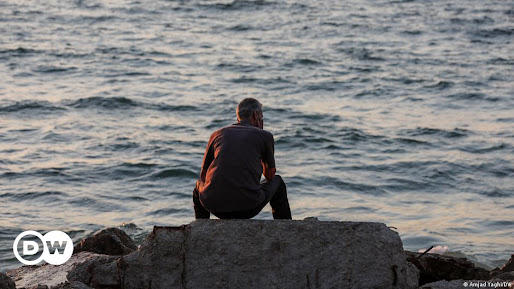Bonn : DEPRESSION - ANXIETY is on the rise. Across the world, people need mental health support now more than ever.
October 10, marked World Mental Health Day, and mental health advocates, including the WHO, have been pushing hard to reform mental health care for decades.
This year, they stress that a perfect storm of events - from the coronavirus pandemic to economic downturns - has had a major impact on mental health around the world.
According to the WHO World Mental Health report published earlier this year, depression and anxiety rose 25% in the first year of the pandemic, bringing the total number of people living with mental disorder to nearly 1 billion people.
''What's more, mental health services have been severely disrupted in recent years, and the treatment gap for mental health conditions has widened,'' a WHO spokesperson told DW.
A special initiative for mental health : So, what's being done about it? In 2020, the WHO established the Special initiative for Mental Health. It is among the WHO'S most ambitious mental health programmes so far, aiming to increase access to mental health services for 100 million people across 12 nations including Ukraine, Jordan and Zimbabwe.
''Many countries have very outdated mental health service mandates,'' Alison Schafer, a technical advisor in the WHO'S mental health department, told DW.
''We're working with countries to change their approaches so more people have access to support.''
Since the initiative began in January 2020, 5 million more people have gained access to mental health and psychosocial support, according to the WHO.
Psychosocial support involves building networks around people in need, often through family and local structures.
Schafer said it took two-and-a-half years to set up the initiatives. ''But now we expect more and more progress to be made towards expanding mental health services so that more people will be able to access support.''
One of the biggest successes so far have been providing mental health and psychosocial support during crises such as Covid-19 pandemic and for people affected by the conflict in Ukraine and the Philippines.
''WE'RE having the most immediate impact on the people here,'' Schafer said, calling crisis support ''key.'' Schafer also cited early successes in countries like Paraguay that have enabled consultations with psychiatrists via video calls.
During the coronavirus pandemic, video consultations were particularly effective in sustaining community support. ''It sounds quite simple to achieve, but what was missing was the infrastructure,'' she added.
Big-picture approach to mental health : According to Schafer, the success comes from basing mental health support on scientific evidence, on decades of learning, and enhanced rights of living with mental health conditions and psychosocial disabilities.
But the initiative has not been without its challenges. ''Some countries are further ahead in their progress,'' Schafer said. ''The WHO'S Special Initiative for Mental Health is working toward facilitating such changes so that expansion of mental health services can be sustained and enhanced even further.''
Community - led programmes offer lasting support : While the WHO is seeing early successes, the project will end in 2023. What happens with the new mental health support networks after that is not clear.
Renee Eloundou, an anti-discrimination consultant at Berlin-based counselling organisation Sources-d'Espoir [ source of hope], is critical of mental health initiatives that have fixed durations.
''The help people need doesn't have an endpoint. The mental instability people find themselves in is very difficult to deal with. It takes time for people to open up and talk. It takes time for people to establish support networks,'' Eloundou told DW.
''And it helps to build trust around mental health,'' Eloundou said. ''If you wish to target mental health issues, you need to collaborate with communities and collaborate with experts who have the skills,'' she added.
'' Then you can make a lasting change ''.
The World Students Society thanks DW.

.png)


0 comments:
Post a Comment
Grace A Comment!